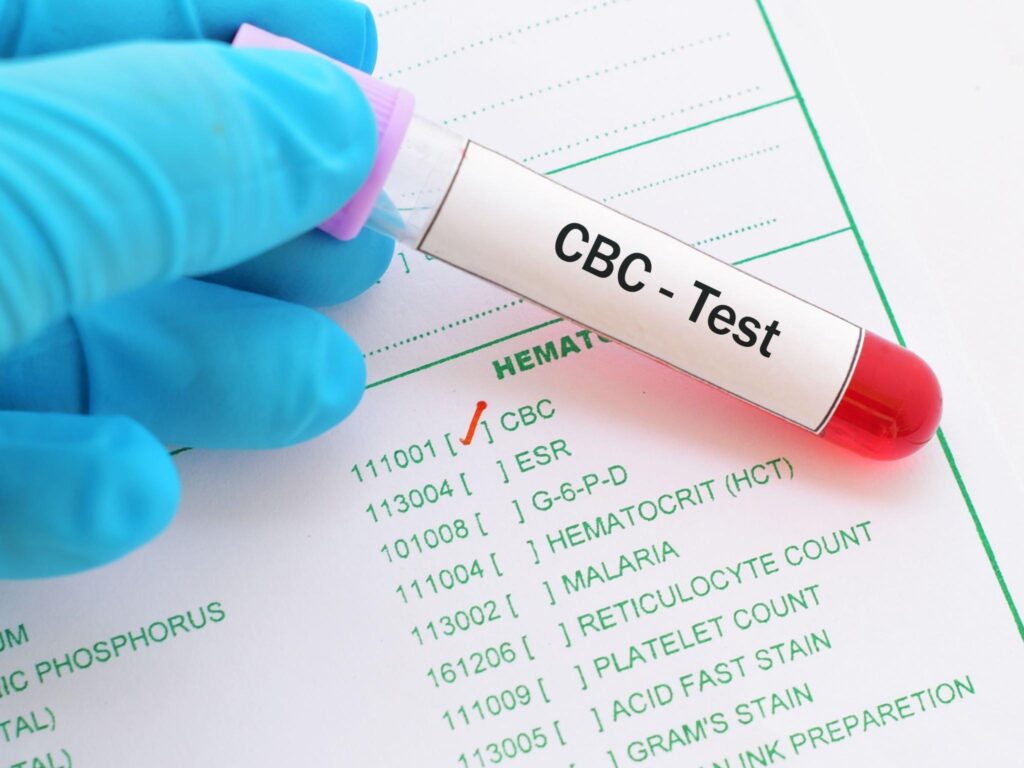A Complete Blood Count (CBC) is a routine blood test that provides essential information about the health of your blood cells. While not a definitive cancer diagnostic tool, abnormal results on a CBC can sometimes be indicative of underlying health issues, including certain types of cancer. This article will delve into the key aspects of CBC blood tests and explore how they can potentially signal the presence of cancer.
The Components of a CBC Blood Test
A CBC typically measures the following components of your blood:
- Red Blood Cells (RBCs): These cells carry oxygen throughout your body.
- White Blood Cells (WBCs): These cells are part of your immune system and help fight infections.
- Platelets: These cells help your blood clot.
- Hemoglobin: A protein in RBCs that carries oxygen.
- Hematocrit: The percentage of blood that is made up of RBCs.
- Mean Corpuscular Volume (MCV): The average size of your RBCs.
Read More: What is cbc blood test
How CBC Can Indicate Cancer
While a CBC alone cannot diagnose cancer, abnormal results can sometimes be a red flag for potential underlying health issues. Here are some ways in which a CBC might indicate the presence of cancer:
1. Anemia:
- Decreased RBC count, hemoglobin, or hematocrit: Anemia, a condition characterized by a low number of red blood cells or a decrease in hemoglobin, can be a symptom of various cancers, including leukemia, lymphoma, and colon cancer.
- MCV abnormalities: Changes in the size of RBCs (MCV) can also be indicative of anemia and associated with certain cancers.
2. Elevated White Blood Cell Count:
- Increased WBC count: An elevated WBC count can be a sign of infection, inflammation, or certain types of cancer, such as leukemia and lymphoma.
- Abnormal WBC differentiation: The types of white blood cells present can also provide clues about potential cancer. For example, an increase in immature white blood cells (blasts) might suggest leukemia.
3. Abnormal Platelet Count:
- Increased or decreased platelet count: Changes in platelet count can be associated with various cancers, including leukemia, lymphoma, and multiple myeloma.
4. Other Indicators:
- Changes in hemoglobin or hematocrit: These values can be affected by various factors, including anemia and certain cancers.
- MCV abnormalities: As mentioned earlier, changes in MCV can be indicative of anemia and associated with certain cancers.
Read More: What is MCV in blood test
Factors That Can Affect CBC Results
It’s important to note that several factors can influence CBC results, including:
- Medications: Certain medications can affect blood cell counts.
- Underlying medical conditions: Other health conditions can impact CBC results.
- Recent blood loss: Blood loss can lead to anemia and affect CBC values.
- Dehydration: Dehydration can concentrate the blood, leading to higher hemoglobin and hematocrit levels.
- Infection: Infections can cause an increase in white blood cells.
Does Alcohol Affect CBC Blood Test?
Excessive alcohol consumption can have a negative impact on overall health and can also affect CBC results. Heavy drinking can lead to liver damage, which can impair the production of blood cells. This can result in anemia and other blood cell abnormalities. Additionally, alcohol can interfere with the body’s ability to absorb certain nutrients, such as vitamin B12, which is essential for red blood cell production.
CBC Blood Test and Kidney Function
Kidney disease can affect CBC results in several ways. The kidneys play a crucial role in regulating blood cell production and removing waste products from the blood. When kidney function is impaired, it can lead to anemia, as the kidneys are unable to produce sufficient erythropoietin (EPO), a hormone that stimulates red blood cell production. Additionally, kidney disease can cause an increase in white blood cells due to inflammation.
Importance of Follow-Up
If your CBC results are abnormal, it’s essential to follow up with your healthcare provider for further evaluation. They may recommend additional tests or procedures to determine the underlying cause. While a CBC alone cannot diagnose cancer, it can be a valuable tool for identifying potential health issues that warrant further investigation.
In conclusion, a CBC blood test is a valuable diagnostic tool that can provide important information about the health of your blood cells. While abnormal results do not necessarily indicate cancer, they can be a red flag for potential underlying health issues. If you have concerns about your CBC results, it’s crucial to consult with your healthcare provider for appropriate evaluation and management.


